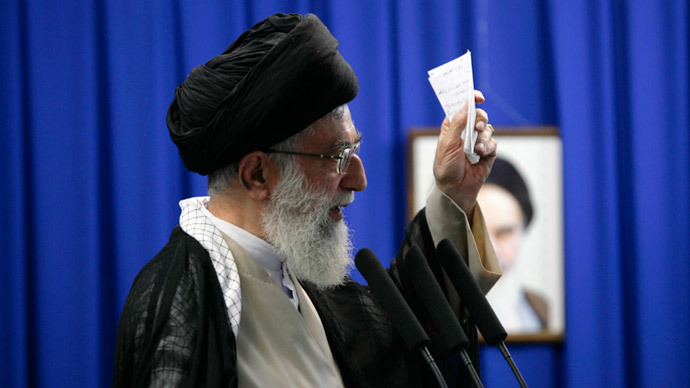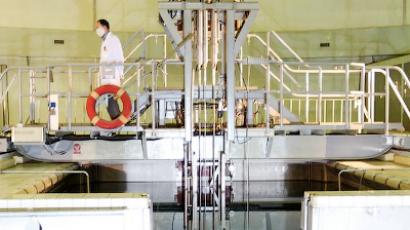Iran’s supreme leader tells students to prepare for cyber war

Ayatollah Ali Khamenei has delivered a sabre-rattling speech to Iran’s ‘Revolutionary foster children’ (in other words, university students) to prepare for cyber war.
The supreme leader has urged his country’s students – whom he called “cyber war agents” – to prepare for battle, the semi-official Mehr news agency reported Wednesday.
“You are the cyber-war agents and such a war requires Amman-like insight and Malik Ashtar-like resistance. Get yourself ready for such war wholeheartedly,” wrote Khamenei.The supreme leader was referring to two of Prophet Mohammad’s warrior companions in early Islamic history.
He also urged the students to be devout and zealously follow the Quran.
Israel, Tehran’s main adversary in regional politics, has voiced similar statements recently; Major General Aviv Kochavi, speaking at the annual conference of the Institute for National Security Studies in Tel Aviv, said that cyber warfare will change the nature of conflict.
“Cyber, in my modest opinion, will soon be revealed to be the biggest revolution in warfare, more than gunpowder and the utilization of air power in the last century,” he said.
Iran has claimed to be the victim of cyber-attacks in the past. In 2010 cyber experts said that the Iranian Bushehr nuclear plant was the victim of the computer stuxnet virus.
Experts said that it was purpose built to attack the power plant and was so sophisticated that it could only have been developed by a nation state, most likely the CIA or Mossad.
Stuxnet can disable computers used to control industry and power generation and is the first malware that can be described as a “cyber-weapon.”
In May 2012, Iranian officials said that Iran was targeted again, this time by a data mining virus called Flame, and that it was the most destructive since Stuxnet.
The Flame malware was apparently planted by a USB stick and caused massive data loss, according to Iran’s Computer Emergency Response Coordination Center.
But Iran is also thought to be behind a number of cyber-attacks in the region, including so-called “kinetic” cyber-attacks (meaning destructive to real world objects) on energy facilities in Saudi Arabia and Qatar, as well as denial of service attacks on a number of American banks.
Israel has also been the victim of cyber warfare. The Carmel Tunnel network leading to Haifa, where Israel’s main naval base is situated, was shut down last September in what was believed to be a cyber-attack.There has also been a major cyber-attack on Haifa’s water system.
Also on Wednesday, Iran’s military chief of staff, General Hassan Firouzabadi, said his country is ready for a “decisive battle against the US and the Zionist regime,” he said, the semi-official Fars News Agency reported.
Firouzabedi said that Iran’s enemies have been preparing to invade the country for the last 10 years, but that if any invasion were to take place Iran would prevail.
“If any war is launched against Iran, we won’t give any ground to the enemy and they themselves know this very well,” he said.
Meanwhile, talks are underway between Iran and six major world powers to resolve the country’s longstanding nuclear dispute with the West. Iran has agreed to cut uranium enrichment from 20 percent, in return for limited sanctions relief, while a more permanent solution is found.
Western nations accuse Iran of trying to develop nuclear weapons, but Iran insists that its atomic program is only for peaceful purposes.














